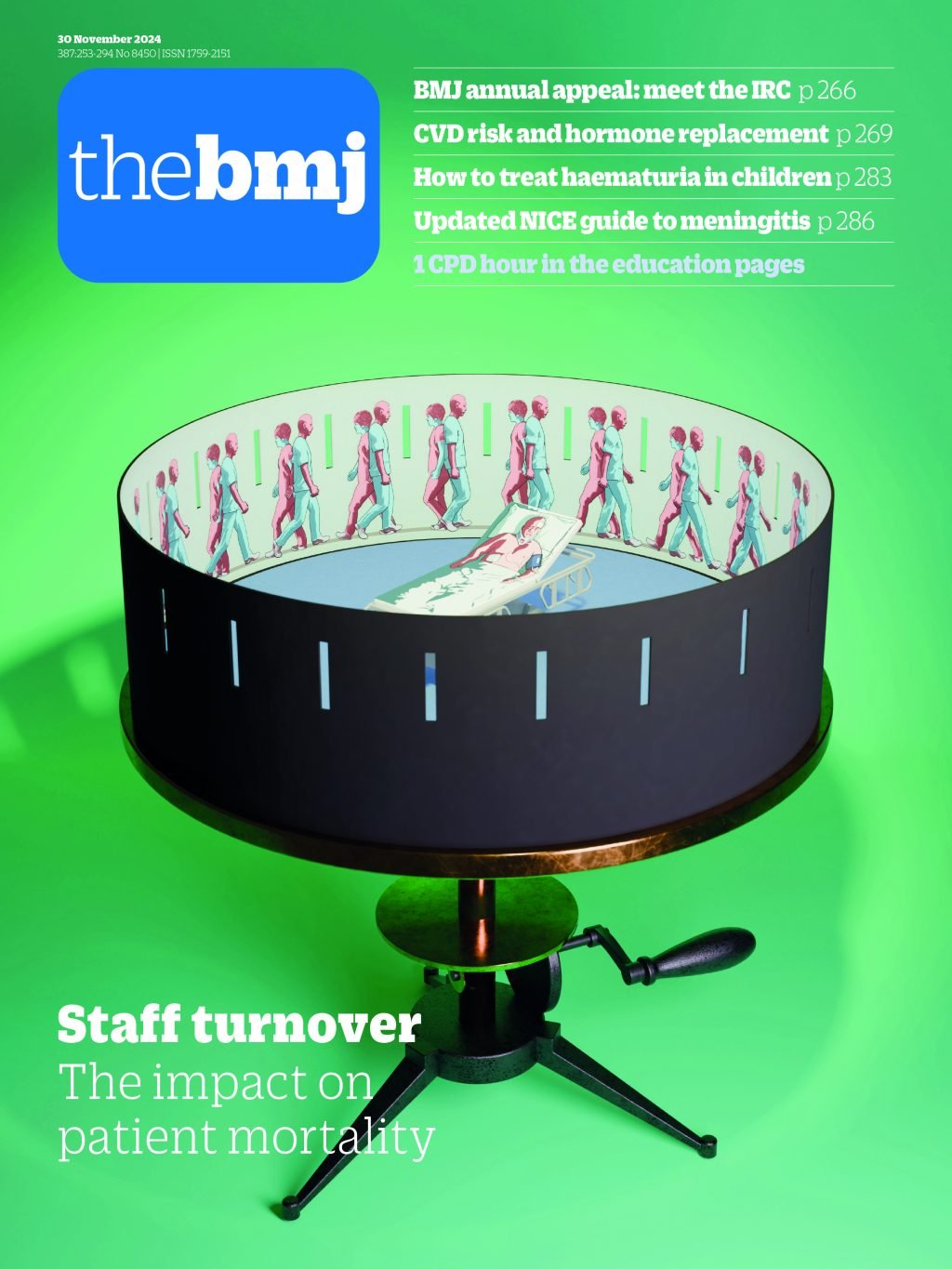
I am a huge fan of African writers—from Chinua Achebe, Flora Nwapa, to Chimamanda Ngozi Adichie. African fiction writers are increasingly taking centre stage, telling our stories, and representing us African people as the multifaceted, complex humans that we are. I am encouraged to see the beginnings of a similar renaissance in African non-fiction by African authors, particularly in the health space. A recent example is Small by Small by Ike Anya.1 I want to see more memoirs about global events told from the perspective of African people.
Too often our experiences are interpreted by foreigners. No matter how well intentioned, such stories are aimed at the so-called foreign gaze—they are at best incomplete and at worst reductionist and patronising.2 The book An Imperfect Storm by the husband and wife team Chikwe and Vivianne Ihekweazu is not that. This is our story. It is written from the perspective of a Nigerian for an African audience.
I declare a competing interest: I am mentioned in the book. The author signed my copy of the book with the words “this is as much your story as ours.” The fact that I smiled, nodded vigorously, and shed a few tears as I read this book attests to how much I identified with it. I have read most of the books published so far by global leaders about the covid-19 pandemic, but I did not feel those stories related to me personally, until now.
An Imperfect Storm offers an insightful and personal narrative about the unprecedented global health crisis of the covid-19 pandemic. Chikwe Ihekweazu draws from his experience as an epidemiologist and his role as the Director General of the Nigeria Centre for Disease Control. He provides a deeply reflective and informative account of how the pandemic unfolded, the challenges faced, and the responses both globally and in Nigeria.
One of the book’s strongest points is its balance between personal memoir and professional analysis. Chikwe Ihekweazu details his front-row perspective on managing a national public health institution during an extraordinary time of global uncertainty. He offers a humanising view of leadership, especially as he navigated the complexities of Nigeria’s public health systems, infrastructure, and societal challenges leading up to and during the pandemic. The role played by his wife and co-author, Vivianne Ihekweazu, shows how leadership affects and relies on the support of family and support networks beyond the workplace.
The narrative sheds light on the broader global health landscape, with Chikwe Ihekweazu examining how different nations worldwide faced their unique struggles. He is candid about the inequities exposed by the pandemic—particularly the limited access to healthcare resources in countries like Nigeria—and the international inequalities in vaccine distribution and other healthcare countermeasures. Ihekweazu does not shy away from critiquing global health institutions and systems that faltered under pressure. And yet, he also highlights moments of hope, collaboration, and resilience.
At its core, An Imperfect Storm argues that steward leadership—where leaders take responsibility for the wellbeing of the institutions and people they serve—plays a critical role in health systems, especially in Africa. Chikwe Ihekweazu’s stewardship is evident as he navigates Nigeria’s response to the pandemic, working to protect citizens during a global health crisis that tested even the wealthiest countries. His leadership is marked by a dedication to transparency and accountability, traits essential to steward leadership. He emphasises that leadership is about care, foresight, and a dedication to long term improvement.
The book also calls for better preparedness and stronger health systems for pandemic preparedness. Chikwe Ihekweazu discusses the need for more robust investment in public health, improved data systems, and greater global cooperation. He reflects on how African nations, and particularly Nigeria, have historically struggled with health challenges and shows how the covid-19 pandemic further exposed these difficulties. His reflections on the migration of health professionals from low and middle income countries to wealthier ones are especially timely, as the so-called brain drain, where highly educated and skilled people leave a country, continues to weaken health systems across Africa.
An Imperfect Storm not only reflects on the pandemic and one man’s experience during a pandemic. It is a call to action for all those who wish to change the narrative of African health systems. The book is an important contribution to the broader conversation about public health, governance, and the importance of building stronger health infrastructures worldwide. Chikwe Ihekweazu’s expert insights into public health, coupled with Vivianne Ihekweazu’s personal stories, make the book both engaging and enlightening.
For readers interested in public health and leadership, and particularly for those interested in African health systems, the book is a thought provoking and essential read. While the covid-19 pandemic may have been an “imperfect storm,” vulnerabilities were exposed that we can no longer afford to ignore. The book shows the transformative power of steward leadership and is a testament to what can be achieved when leaders take their responsibility seriously. For anyone looking to change the narrative of Africa’s health systems, this book should be mandatory reading.
An Imperfect Storm is a timely and powerful contribution to the literature on global health and pandemic preparedness.
Footnotes
-
Provenance and peer review: not commissioned, not externally peer reviewed.
-
Competing interests: I have no competing interests.






